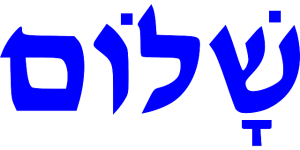Podcast: Play in new window | Download | Embed
In this class we discuss the meaning and commentary in Exodus 4:27 – 5:3.
Exodus Ch. 4:
27Now the LORD said to Aaron, “Go to meet Moses in the wilderness.” So he went and met him at the mountain of God and kissed him.28Moses told Aaron all the words of the LORD with which He had sent him, and all the signs that He had commanded him to do.29Then Moses and Aaron went and assembled all the elders of the sons of Israel;30and Aaron spoke all the words which the LORD had spoken to Moses. He then performed the signs in the sight of the people.31So the people believed; and when they heard that the LORD was concerned about the sons of Israel and that He had seen their affliction, then they bowed low and worshiped.
Exodus Ch.5:
1And afterward Moses and Aaron came and said to Pharaoh, “Thus says the LORD, the God of Israel, ‘Let My people go that they may celebrate a feast to Me in the wilderness.’”2But Pharaoh said, “Who is the LORD that I should obey His voice to let Israel go? I do not know the LORD, and besides, I will not let Israel go.”3Then they said, “The God of the Hebrews has met with us. Please, let us go a three days’ journey into the wilderness that we may sacrifice to the LORD our God, otherwise He will fall upon us with pestilence or with the sword.”
Links:
Buy Nahum Sarna’s “Exploring Exodus” here.
or the book I use, JPS Torah Commentary, here.
As well as Umberto Cassuto’s book here.
Thanks for listening.
Post any questions, comments, or criticisms below. I love it when you share!




Follow Me!